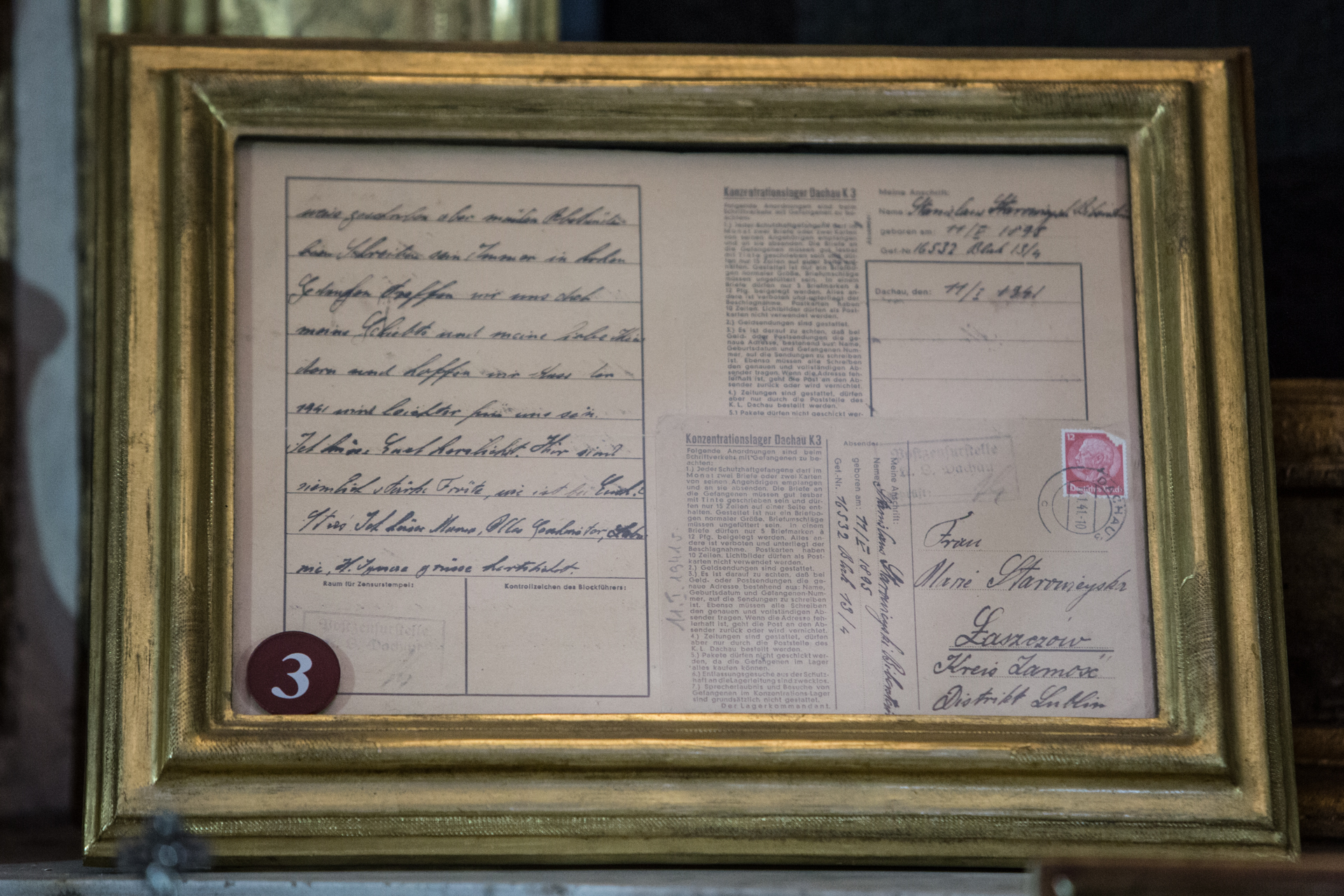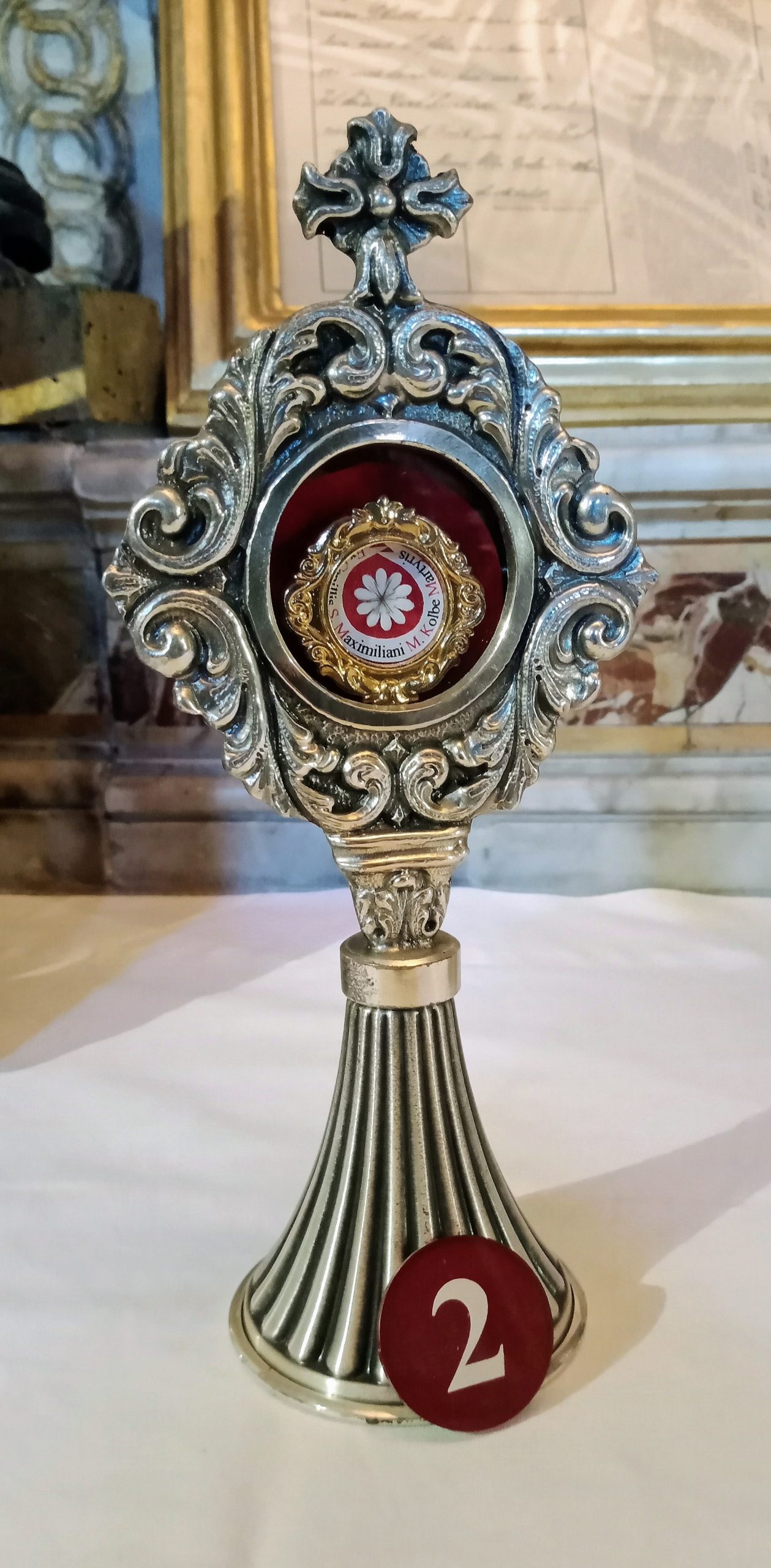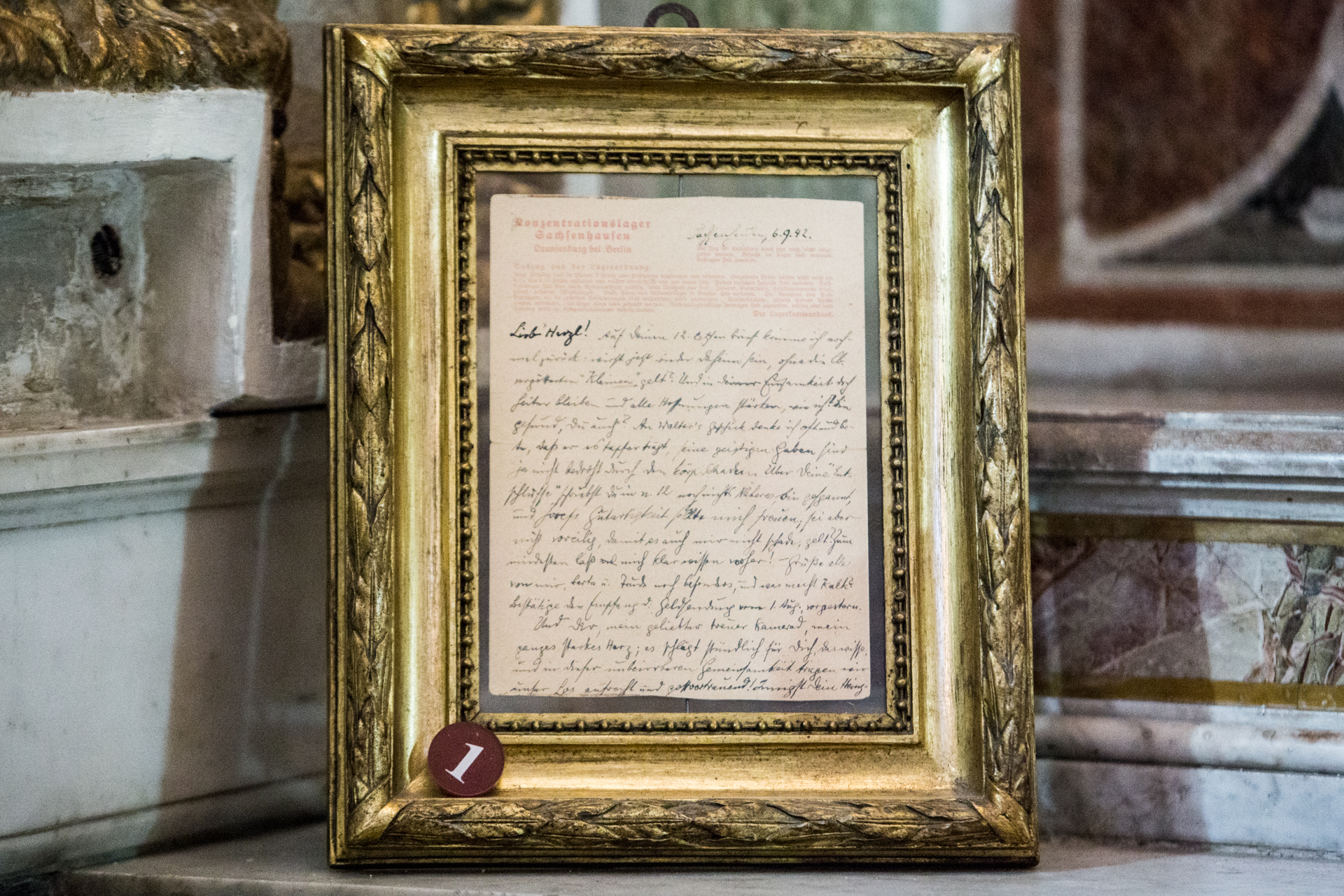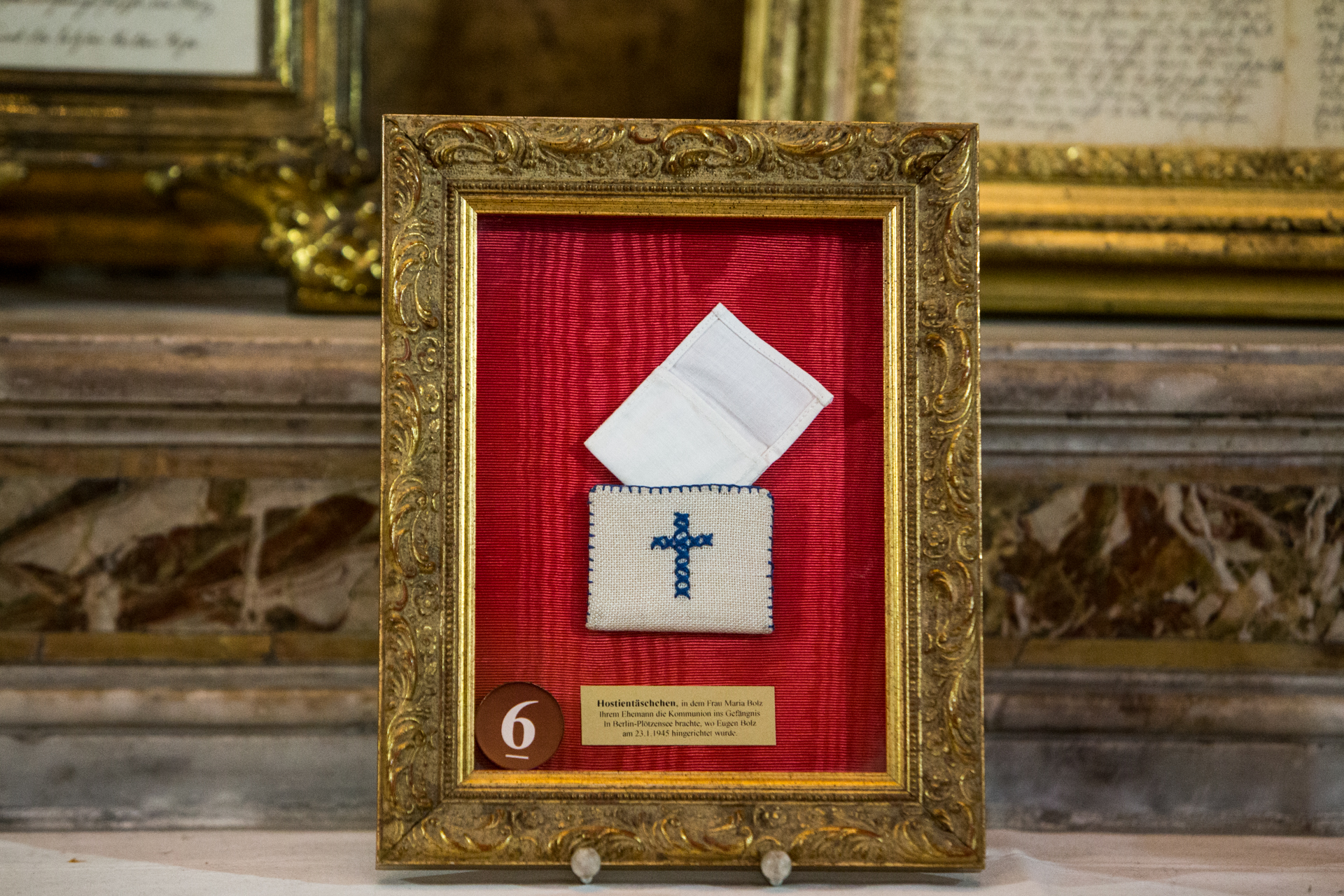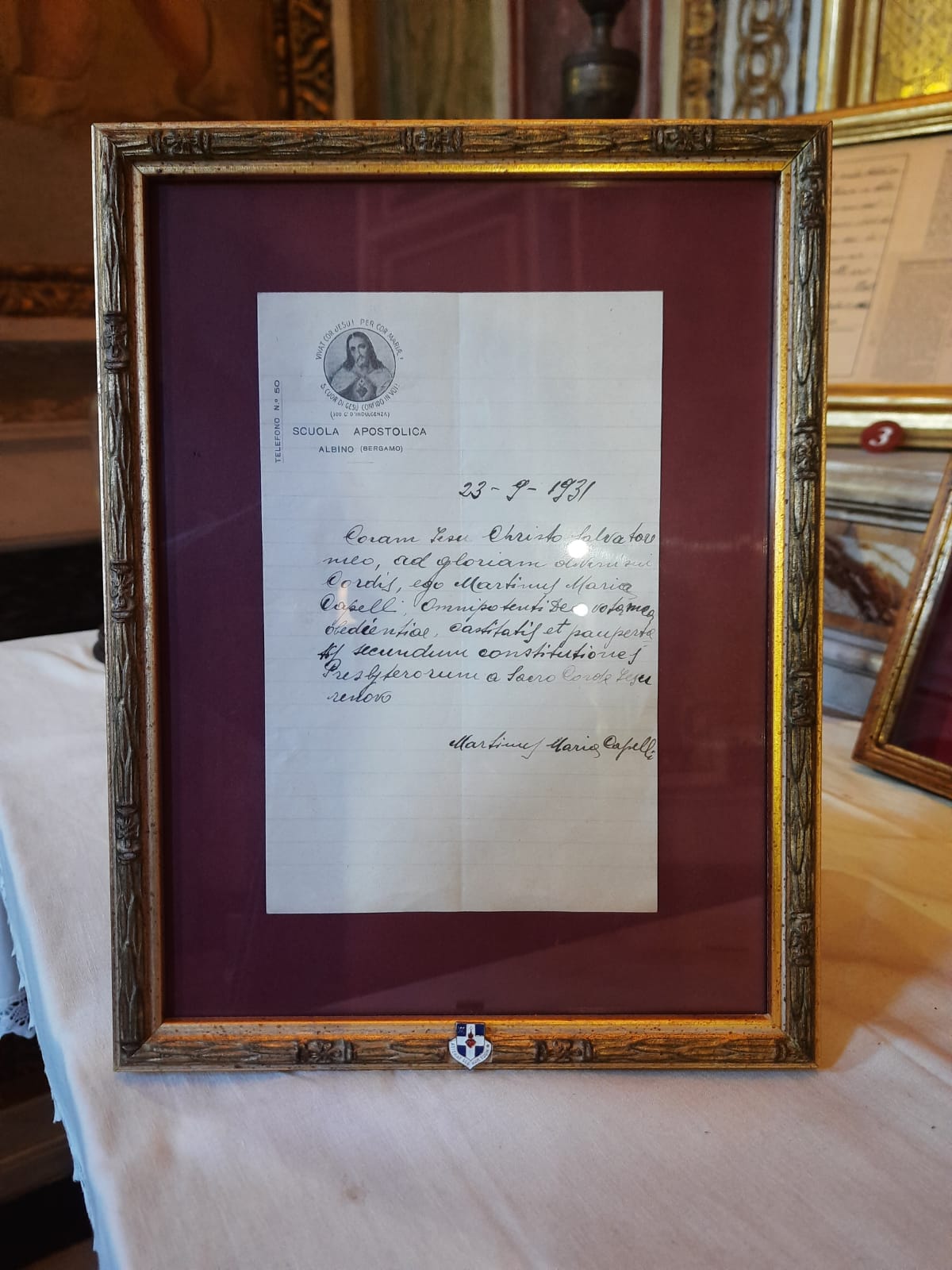The letter of Polish Evangelical Bishop Juliusz Bursche, preserved in the chapel dedicated to the martyrs of Nazism, was sent to his family from the Sachsenhausen/Oranienburg concentration camp, where he had been interned in 1939 and later executed, on 20 February 1942.
When the First World War broke out, the Lutheran bishop was arrested by the Russians and deported to Moscow, because he was considered a nationality. He was only able to return to Warsaw in 1918. In that year he was elected as a Member of Parliament and participated as an expert at the Versailles Peace Conference. After the First World War, he worked to establish the Evangelical Church in Poland and for its legal recognition, which was granted in 1937, the year in which he was elected the Church’s first bishop. At the outbreak of the Second World War, although he was aware of the risk he was running, he did not want to leave Poland, and at the end of 1939 he was arrested by the German authorities and transferred to prison first in Berlin, then to Sachsenhausen, on charges of betraying the German nation and promoting the polonisation of the Evangelical Church he led.
His ashes were found in 2017 in a Berlin cemetery and transferred to the Evangelical cemetery in Warsaw.
Bursche said that ‘the task of the Church is to proclaim the Gospel, not to proclaim German or Polish national ideology, in the conviction that, in Poland, it was necessary to build a Lutheran Church loyal to the state and desolidarised from nationalist ideas’.
Bishop July, recalling the exemplary figure of Juliusz Bursche 80 years after the start of World War II, acknowledged the unspeakable suffering caused by Germany since the invasion of Poland:
“We must openly and sincerely confess this history of sin and the responsibility for it. We German Lutherans are therefore grateful to God and our Polish brothers and sisters for the steps of reconciliation, for this ecumenical liturgy that binds peoples across ancient borders. Even today there are persecutions because of faith or belonging to an ethnic group. Even today there are refugee camps where people are crammed miserably. Even today we deplore the return of nationalism and racism’.
